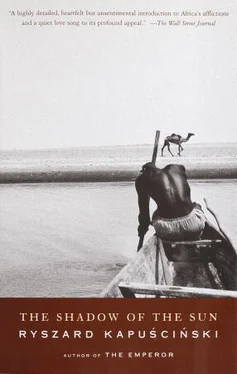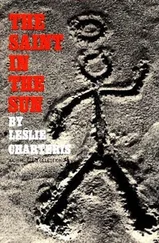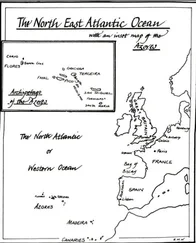But Kenyatta here, now? On a Sunday morning? His motorcade rushing at such breakneck speed? Something extraordinary must have happened.
Without hesitating, I turned around and followed the convoy. A quarter of an hour later we were in the capital. The cars pulled up to the prime minister’s office — a modern, twelve-story structure on City Square in downtown Nairobi — but the police barred my way and I had to stop. I was left alone on the empty street, with no one in sight from whom to get information. In any event, it didn’t look as if anything was happening in Nairobi itself: the city was slumbering, in a Sunday torpor, deserted.
It occurred to me that it might be a good idea to drop by Felix’s place — he might know something. Felix Naggar was the bureau chief of Agence France Presse in East Africa. He lived in a villa in Ridgeways, an exclusive, hyperelegant Nairobi neighborhood. Felix was an institution. He knew everything, and his net of informers stretched from Mozambique to the Sudan, from the Congo to Madagascar. He himself rarely stepped outside his house. He was either supervising his cooks — he had the best kitchen in all of Africa — or sitting in front of the fireplace reading crime novels. In his mouth he held a cigar. He never removed it — unless it was just for a moment, in order to swallow a bite of baked lobster or taste a spoonful of pistachio sorbet. Every now and then the phone would ring. Naggar would pick up the receiver, scribble something down on a bit of paper, and walk to the other end of the house, where his aides sat at teleprinters (they were the most handsome young Indians he could find in Africa). He would dictate to them the text of the telegram, fluently, with no hesitations or corrections, then return either to the kitchen, where he would stir something in the pots, or before the fireplace, to continue reading.
I found him now sitting in the armchair, as usual, with a cigar and a crime novel.
“Felix!” I shouted from the threshhold. “Something is happening, because Kenyatta just returned to Nairobi!” And I told him about the government motorcade I had encountered on my way to Uganda. Naggar ran to the phone and started dialing everywhere. I turned on his radio. It was a Zenith, a shortwave receiver, phenomenal — I had been dreaming about one for years. It picked up several hundred stations, even shipboard transmissions. At first all I could hear were broadcasts of masses, Sunday sermons, and organ music. Commercials, programs in unintelligible languages, the calls of muezzins. Then, suddenly, through the noise and static, a barely audible voice came through: “… the tyranny of the sultan of Zanzibar has ended once and for all… the governments of bloodsuckers, which… signed, general headquarters of the revolution, the field marshall…”
More noise and static, then the loose, flowing words and rhythms of the fashionable band, Mount Kenya. That was it, but we now knew the most important thing: a coup in Zanzibar! It must have happened last night. That’s why Kenyatta had returned in such haste to Nairobi. The revolt could spread to Kenya, to all of East Africa. It could transform it into another Algeria, another Congo. But at this moment, for us — for Felix and for me — there was but one issue: to get to Zanzibar.
We began by calling East African Airways. The first flight to Zanzibar, they informed us, is on Monday. We booked places. An hour later, however, they called us back to say that the airport in Zanzibar had been closed and all flights canceled. What now? How do we get there? There was an evening flight to Dar es Salaam. From there, it’s not far to the island: forty kilometers across the water. We had no choice; we decided to fly to Dar and set out from there for Zanzibar. As we were figuring all this out, the rest of Nairobi’s foreign correspondents arrived at Felix’s house. There were forty of us. Americans, Englishmen, Germans, Russians, Italians. We all decided to take the same plane.
In Dar es Salaam we took over the Imperial Hotel, an old building with a spectacular veranda, from which the bay is visible. Rocking on its waters was the white yacht of the sultan of Zanzibar. The young sultan — Seyyid Jamshid bin Abdulla bin Harub bin Thwain bin Said — had escaped on this yacht, leaving behind the palace, the treasury, and his red Rolls-Royce. The crew of the yacht tell us about the great carnage overtaking the island. Blood is flowing in the streets. The rabble are looting, raping, setting fire to houses. No one is safe.
For the time being, Zanzibar is cut off from the world. Their radio announces every hour that any airplane attempting to land on the island will be shot down. And any approaching boat or ship will be sunk. They are sending out these warnings, we reason, because they must be afraid of intervention. We sit around listening to the communiqués, condemned to idleness and interminable waiting. In the morning, we receive news that British warships are sailing toward Zanzibar. Tom, from Reuters, is rubbing his hands in anticipation, convinced that he will be transported aboard ship by helicopter and will land on the island with the first division of the marines. All of us can think of one thing only: how can we get to Zanzibar? I have the fewest options, because I have no money. In cases of revolutions, coups, and wars, the large agencies don’t worry about expenditures. They pay whatever is necessary to obtain firsthand information. The correspondent from AP, AFP, or the BBC charters a plane or a ship, or purchases a car that he will need for only several hours — anything to get to where the action is. I stood no chance on such a playing field; I could only hope for some opportunity, for a stroke of luck.
At noon, a fisherman’s boat pulled up near our hotel. Aboard were several American journalists, their faces burned lobster red by the sun. They had tried to reach Zanzibar that morning, their boat was already close, when those onshore started shooting at them, bullets flying so thick and fast that they had to give up and turn around. The sea route was closed.
After lunch I drove to the airport to see what was happening there. The terminal was full of journalists, piles of cameras and suitcases everywhere. Many of the reporters were dozing in armchairs, others were drinking beer at the bar, sweaty, exhausted by the heat, tropically disheveled. The plane for Cairo departed, and it grew quiet all around. A herd of cows walked slowly across the runway. Other than that, there was no sign of life in this hot, dead space, this desolate emptiness at the end of the world.
I was thinking of returning to town when suddenly Naggar appeared, stopped me, and took me aside. Although we were alone in this place, he looked around to make sure no one could hear him, and, speaking in a whisper, mysteriously, he said that he and Arnold (a cameraman from NBC) had hired a small plane and paid a pilot to fly them to Zanzibar. They couldn’t get going, however, because the airport there was still closed. They had just come from the air traffic control tower, and had spoken to the one at the airport on Zanzibar, asking if they would be allowed to land. No, they were told; they would be fired upon if they tried.
Relating all this, Naggar was nervous. I noticed that he threw away a barely lit cigar and quickly pulled out another one.
“What do you think?” he said. “What can we do?”
“What sort of plane is it?” I asked.
“A Cessna,” he answered. “A four-seater.”
“Felix,” I said, “if I manage to secure permission to land, will you take me for free?”
“Of course!” He agreed instantly.
“Good. I need one hour.”
As I was saying all this, I was aware I was bluffing (though it turned out later not to have been a complete bluff). I jumped in the car and raced back to town.
Читать дальше












